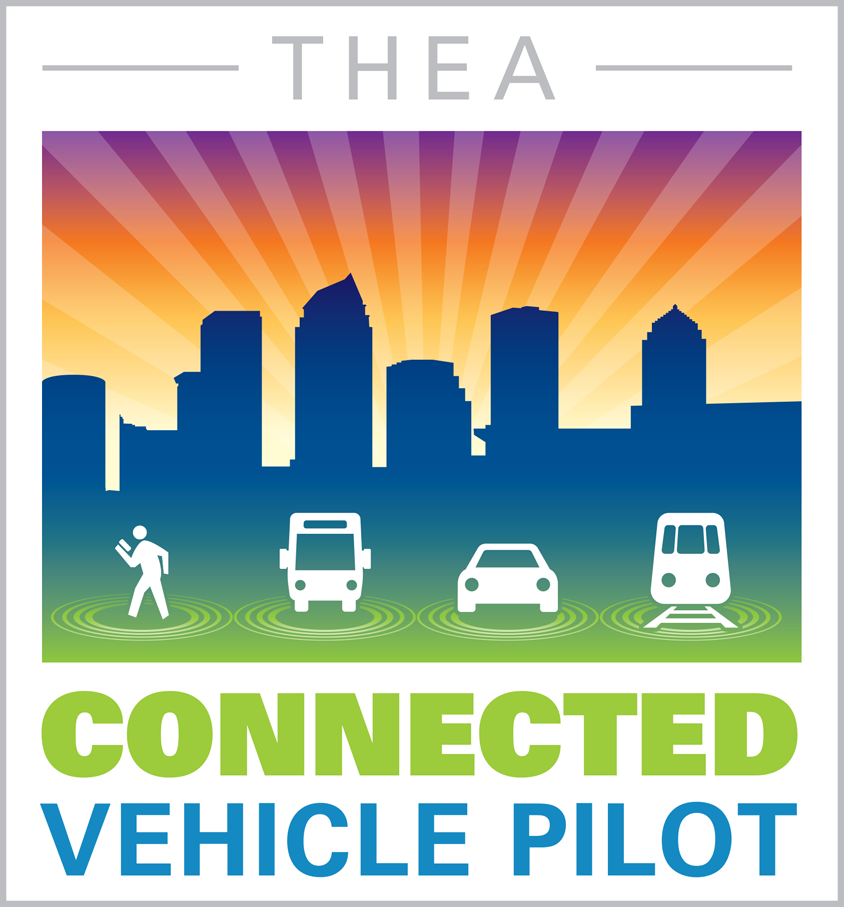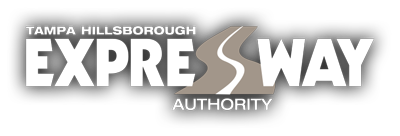Frequently Asked Questions
A connected vehicle is a car, truck, bus or other vehicle that can wirelessly exchange safety and traffic information with other vehicles and with traffic signals, crosswalks and other elements of the roadway infrastructure. This connectivity enables a wide range of software applications designed to improve safety, mobility and the environment.
No. The driver of a connected vehicle receives safety messages but remains in full control of the vehicle at all times.
In Tampa, connected vehicles communicate using a two-way, short-to-medium-range wireless capability called dedicated short range communications (DSRC), which is similar to Wi-Fi. Some vehicles may be equipped with DSRC devices by the manufacturer, while others require the installation of an aftermarket device.
The U.S. Department of Transportation’s Connected Vehicle Basics is a good place to start. More information can also be found on the Resources page.
The Connected Vehicle Pilot Deployment Program is an initiative of the U.S. Department of Transportation (USDOT) that aims to spur the adoption of connected vehicle technologies. The program funds the deployment of these emerging technologies at sites where they have the potential to effect measurable, near-term improvements in the performance of local transportation systems. USDOT selected the program’s first three deployment sites (Tampa, New York City and Wyoming) in a nationwide competition in 2015.
In 2015, the U.S. Department of Transportation awarded the Tampa Hillsborough Expressway Authority a $17 million contract to test and deploy connected vehicle technology in downtown Tampa as part of its Connected Vehicle Pilot Deployment Program.
The goals of the pilot are to improve safety, enhance mobility and reduce the environmental impact of surface transportation in downtown Tampa.
The Tampa Hillsborough Expressway Authority has assembled a team including HNTB, Siemens, Brandmotion, the University of South Florida Center for Urban Transportation Research and Global-5. Key partners include the Florida Department of Transportation, the City of Tampa, the Hillsborough Area Regional Transit Authority, the TECO Line Streetcar System and Hillsborough Community College.
The pilot deployment is funded by a $17 million contract with the U.S. Department of Transportation as part of its Connected Vehicle Pilot Deployment Program. The Tampa Hillsborough Expressway Authority is also contributing $4 million from toll revenue. No state or local tax dollars are committed to the project.
Connected vehicles have the potential to significantly improve safety, mobility, and the environment in downtown Tampa and elsewhere. With the Connected Vehicle Pilot, Tampa will be among the first cities in the nation to benefit from this exciting new technology.
In the first three phases of the THEA CV Pilot, the Tampa Hillsborough Expressway Authority (THEA) and its partners equipped approximately 1,000 privately-owned automobiles, 10 buses, and 8 streetcars with wireless communication devices to participate in the pilot.
In phase 4 THEA will install approximately 400 qualifying vehicles and Original Equipment Manufactures (OEM). THEA is partnering with the following OEMs, Acura, Honda, Hyundai, KIA, and Toyota.
The pilot is taking place in the heart of downtown Tampa in an area bordered by Ybor Channel to the east, Garrison Channel to the south, Florida Avenue to the west, and Scott Street to the north. Explore the deployment area on our interactive map.
Changes to downtown infrastructure are minimal. The Tampa Hillsborough Expressway Authority has installed 46 wireless communication devices called roadside units on streets throughout the deployment area. View the roadside unit locations on our interactive map.
The THEA Connected Vehicle Pilot is proceeding in four phases:
- Concept development (September 2015—August 2016)
- Design, implementation, and testing (September 2016—August 2018)
- Operation and maintenance (September 2018—April 2020)
- OEM implementation, testing, and deployment (May 2020-present)
The Tampa Hillsborough Expressway and its partners hope to make connected vehicles a continuing part of the city’s transportation system so Tampa Bay area residents and visitors can enjoy the benefits of connected vehicle technology long after the pilot has ended.
Connected vehicles send and receive messages containing safety-related information such as vehicle location, heading, and speed, but these messages do not identify the vehicle or the driver. The THEA Connected Vehicle Pilot team is committed to protecting personal privacy.
Law enforcement does not collect any personally identifiable information from the pilot.
The connected vehicle environment relies mainly on dedicated short-range communication (DSRC) technology, which has more security and privacy protections than Wi-Fi or Bluetooth. Additional safeguards have also been developed to prevent unauthorized access to the system.
Cars must be equipped with a DSRC-enabled device in order to participate in the downtown Tampa connected vehicle environment. However, drivers of unequipped vehicles may also notice some improvements. For example, the City of Tampa’s Transportation Management Center uses data from connected vehicles to improve traffic signal timing at certain intersections. As a result, all drivers on the affected streets may experience a smoother trip.
Currently, registration is open for select drivers to participate. Please contact us for more information.

